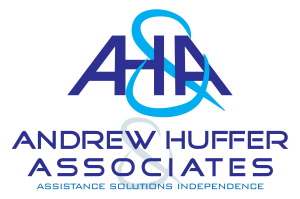Learning styles are a great tool to get the best from your team
A real benefit of working with any team is in the diversity that you can tap into. This can be diversity of skills, age (think generational perspectives) or experience.
Another ‘rich seam’ of diversity that we can tap into is in the learning styles of team members. These were refined by Peter Honey and Alan Mumford, and focus on four distinct learning styles or preferences: Activist, Theorist; Pragmatist and Reflector.
Understanding and utilising these styles will help you to improve the performance of your team. A brief description of each style is outlined in the table below.
| Learning Style | Likes | Dislikes |
| Pragmatist | Putting learning into practice.
Practical problem solving; relevance to the real world; applying learning. They are experimenters and like to try out new ideas, theories and techniques to see if they work. |
Anything theoretical; learning that focuses too much on past or future and not present.
Abstract concepts and games are of limited use unless they can see a way to put the ideas into action in their lives. |
| Activist | Doing and experiencing.
Activists need to get their hands dirty, and jump right into any activity. They have an open-minded approach to learning, involving themselves fully and without bias in new experiences. They enjoy games, practical activities, anything that is energetic and involving. |
Sitting around for too long; working alone; theorising; having to listen to others. |
| Reflector | Observing and thinking about what happened.
They like time to think, observe, take it all in; watching others; solitude and time. They may avoid leaping in and prefer to watch from the sidelines. Prefer to stand back and view experiences from a number of different perspectives, collecting data and taking the time to work towards an appropriate conclusion. |
Being thrown into activities, no time to think; crammed timetables; lack of privacy, no time to prepare. |
| Theorist | Understanding the theory behind the actions.
They need models, concepts and facts in order to engage in the learning process. Prefer to analyse and synthesise, drawing new information into a systematic and logical ‘theory’. They like to know where something fits into overall ideas and concepts; analysis and logic; being stretched; abstract concepts; structure, clarity. |
Frivolity, mindless fun; wasting time; not being able to question; lack of a timetable and structure. |
Know your own preference
Focusing on our own preferred style is a trap for many of us in managing or working with teams. It can detract from being able to get the best from your team. It’s an understandable habit, as it’s something we’re naturally comfortable with. Just imagine the results if you’re of the activist style and you’re working closely with a team member who is a reflector. What if you constantly involved them in high-energy, action-focused activities, without any time to process what they’d experienced? Looking at their dislikes, this could end in tears pretty quickly!
Insights
Here is what your team members will most likely be thinking when you involve them in either planning or training activities…
The Pragmatist:
- Will we be addressing real problems? Real to me?
- Will the examples or case studies be real and credible?
- Will there be lots of practical tips and techniques?
- Will there be opportunities to practice and experiment?
- Will we come away with action plans? Next steps?
The Activist:
- Shall I learn or do something new?
- Will I get to have a go?
- Will there be a wide variety of activities?
- Will it be fun? Not boring?
The Reflector:
- Shall I be given adequate time to consider, assimilate and prepare?
- Will I be under pressure to be slap-dash?
- Will there be opportunities to think about and discuss relevant information?
- Will there be opportunities to listen to and discuss other perspectives?
The Theorist:
- Will there be lots of opportunities to question and discuss?
- Is there a clear purpose, objective and plan for the day?
- Will the agenda or structure of the day be explained and referred to?
- Are the concepts and information presented sound and valid?
- Will there be lots of opportunities to question and discuss?
Adapting this further
Peter Honey recommends expanding the ‘band width’ of your learning experiences by working to become an all-round learner. This increases your versatility and helps you learn from a wide variety of different experiences – some formal, some informal, some planned and some spontaneous.
I see this as a case of ‘walking our talk’ by firstly stretching ourselves in our learning modes and then challenging our team members to do likewise. Encourage them to share their insights from this experience and how it could be of benefit to the team or even their clients in the future and still help you to get the best from your team.
This process may even expose some gaps in your team that need to be addressed through either recruitment, training or coaching processes.
Digging Deeper
Honey and Mumford have been smart about using their IP – you can purchase a self-assessment online. A worthwhile investment in the future performance of your team I reckon! See www.peterhoney.com
Of course, if you need some help act now to get in touch.

Reader Interactions